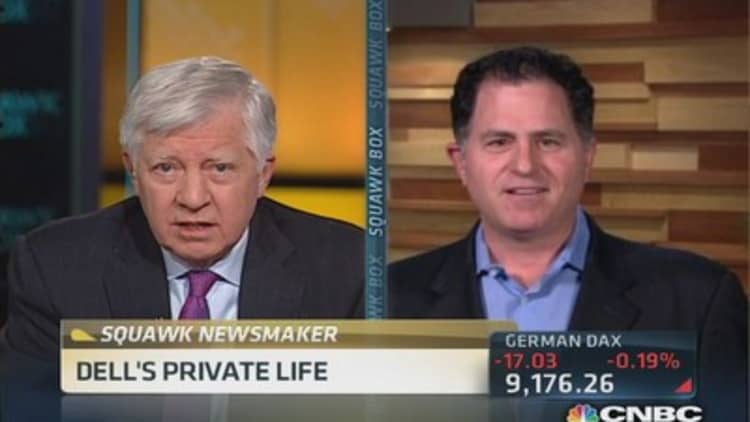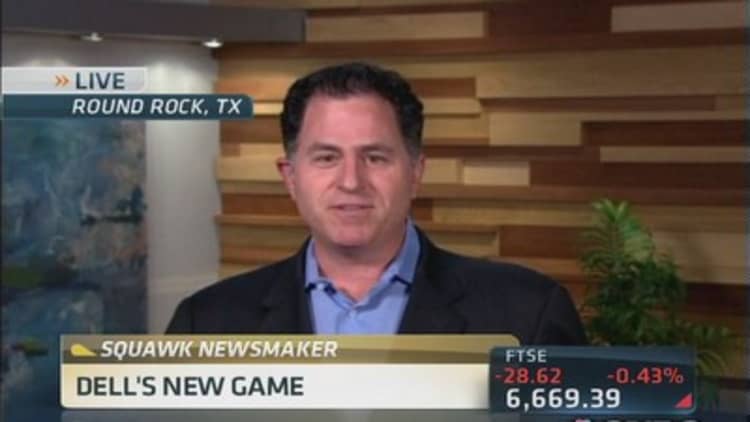
Major shareholders like Carl Icahn who opposed the $24.9 billion deal to take Dell private were just trying to drive up the stock price, Michael Dell told CNBC on Wednesday.
"[Icahn] didn't own a share of the stock until after the deal was announced, and had no long-term … good intentions for the company or its shareholders or people inside the company," Dell said in a "Squawk Box" interview.
(Read more: Icahn bows out of battle for control of Dell)
Going forward, the Dell Co. founder and chief said: "We're building out our solutions, not just focused on the near-term but thinking about the cloud, mobile, big data—all the opportunities and challenges that IT represents."

"There are areas where we're going to make big bets," he hinted, but said the details won't be released until next month at the annual Dell World conference. "We're increasing our investments in R&D and I think you'll see the fruits of that."
Dell went private last month, after Dell and private equity group Silver Lake completed their controversial buyout. "Ultimately the bid by myself and Silver Lake was the highest price available for the company," Dell said. The stock was delisted on the Nasdaq on Oct. 29. He said there are no plans right now to bring the computer company public again.
(Read more: Icahn slams Dell board after dropping fight)
"Out in the start-up world," Dell said, "companies have a desire to stay private longer. There not so entranced by the public markets here." He cited, as another factor, the availability of debt capital at attractive rates.
But now that more mature companies like Twitter, Facebook, and LinkedIn are public companies, Dell said he sees social networks as a way to improve the "speed at which teams collaborate [and] share information."
Dell started the company from his college dorm room in 1984, and built it into a model for computer production and supply chain management. But like its rivals, Dell has been hit by the global slowdown in PC sales in recent years, as consumers spent more and more on tablets and smartphones.
Now, he said, "our business is not as dependent on the PC as it was 10 or 20 years ago. We've broadened our business considerably, the enterprise and solutions services software."
And as Microsoft searches for a new CEO, Dell said he's impressed with what he's hearing so far. "Microsoft's an important partner for Dell, an important company in the industry. I'm sure they'll come-up with a great solution there."
(Read more: Ballmer: Microsoft needs leader for a new era)
—By CNBC's Matthew J. Belvedere. Follow him on Twitter @Matt_SquawkCNBC. Reuters contributed to this article.


